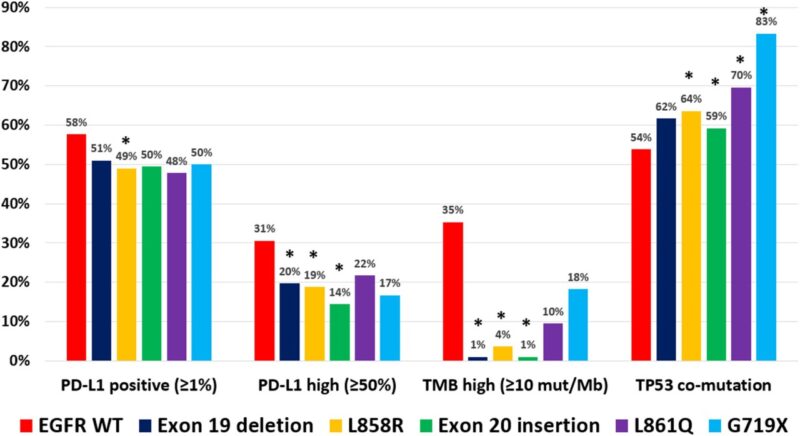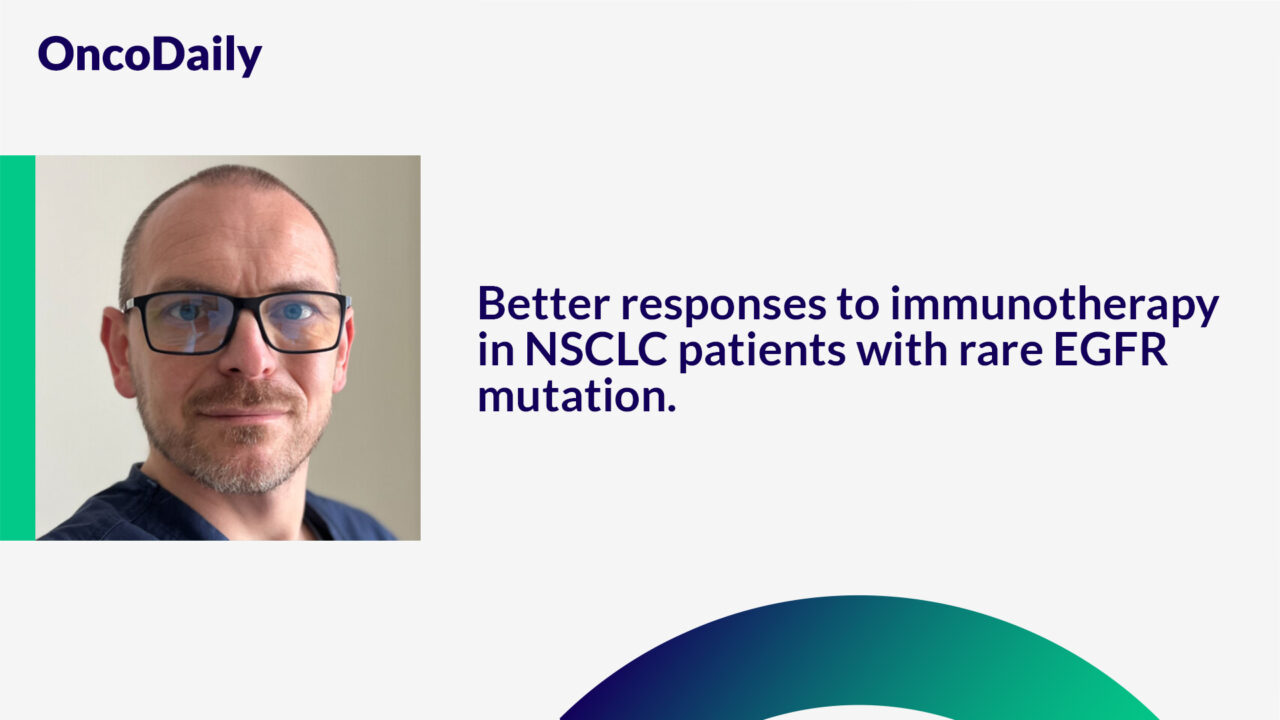Piotr Wysocki recently posted on LinkedIn:
“The efficacy of immune checkpoint inhibitors (ICI) as monotherapy in NSCLCL patients with EGFR mutations is scarce. In small series, a response rate of about 15%, a median progression-free survival of 2 to 4 months, and a median overall survival of up to 8 months was observed irrespectively of PD-L1 expression, which was far below the ICI activity in a general population of NSCLC patients.
A recent study published by Bodor JN et al in Clinical Lung Cancer revealed that NSCLC patients with rare EGFR mutations L861Q and G719X may significantly benefit from immunotherapy.
Bodor JN et al. analyzed 5510 lung adenocarcinoma samples, including 791 samples of tumors with EGFR mutation. Besides common EGFR mutations (exon 19 deletion and exon 21 L858R substitution), 13% of samples had exon 20 insertion, 3% – exon 21 L851Q alteration, and 2% – exon 18 G719X alteration.
The researchers demonstrated that compared to EGFRwt tumors, EGFR-mutated tumors were less likely to express PD-L1 and to have a high tumor mutational burden but more often had TP53 mutations.
The researchers demonstrated that compared to lung adenocarcinoma tumors without EGFR mutations,
- Tumors with ex19del and ex21 L858R mutations had significantly fewer CD8+ T cells and significantly more CD4+ non-regulatory T cells, M2 macrophages, neutrophils, and natural killer (NK) cells
- Tumors with exon 20 insertions had significantly more CD4-positive non-regulatory T cells, M2 macrophages, neutrophils, and NK cells
- Tumors with L861Q or G719X alterations had significantly more NK cells
The authors concluded that the tumor microenvironment in NSCLC patients with rare EGFR mutations seems to create a unique immune milieu that may improve the activity of immune checkpoint inhibitors. ”

Authors: J. Nicholas Bodor, Joanne Xiu, Vinicius Ernani, Supreet Kaur, Hirva Mamdani, Sai Hong I. Ou, Patrick C. Ma, Hossein Borghaei, Margie L. Clapper, Ari Vanderwadle, Joseph Treat
Source: Piotr Wysocki/LinkedIn
Piotr Wysocki leads the Clinical Oncology Department at University Hospital and the Faculty of Oncology at Jagiellonian University-Medical College in Krakow, Poland. As an advisor to the Polish Ministry of Health, he shapes the national cancer strategy.
His clinical expertise spans the systemic treatment of breast, gynecologic, and genitourinary cancers, with a focus on developing innovative metronomic chemotherapy-based therapies for advanced cancer patients who have undergone prior treatment.
Read other posts by Piotr Wysocki published on OncoDaily.


